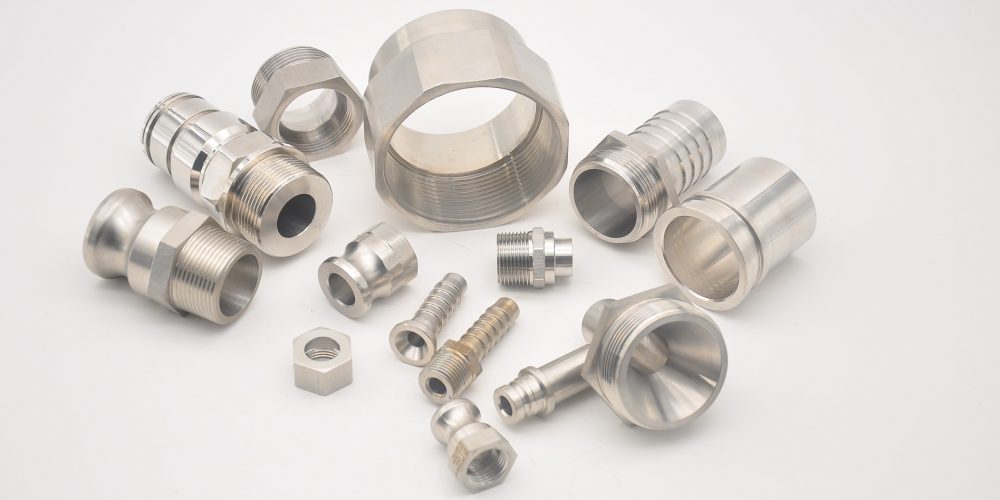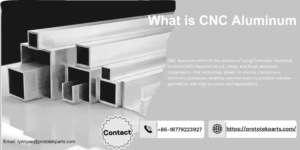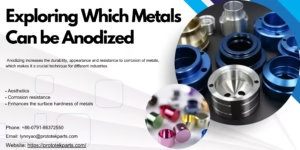Dettagli del blog

Exploring the Pros and Cons of Custom Stainless Steel Parts by Prototek
The demand for customized solutions is rising in today’s industrial landscape, especially regarding stainless steel parts. These components are crucial in various industries due to their corrosion resistance, strength, and durability. However, are custom stainless steel parts the best choice for your project? This article delves into the advantages and challenges associated with customization to help you make an informed decision.
Advantages of Custom Stainless Steel Parts
Corrosion Resistance
Stainless steel is renowned for its exceptional corrosion resistance, making it an ideal choice for applications exposed to harsh environments such as marine, chemical, and food processing industries. Unlike other metals that may rust or corrode over time, stainless steel forms a passive oxide layer on its surface, which acts as a protective barrier against corrosion. By opting for custom stainless steel parts from Prototek, you can ensure that the components are specifically engineered to withstand the corrosive conditions they will encounter, leading to extended service life and reduced maintenance requirements.
Strength and Durability
Customized stainless steel parts from Prototek offer superior strength and durability compared to off-the-shelf options. Stainless steel exhibits excellent mechanical properties, including high tensile strength, hardness, and impact resistance, making it suitable for demanding applications in the automotive, aerospace, and construction industries. By customizing the design and material specifications, engineers can optimize the strength-to-weight ratio of stainless steel parts, resulting in lighter yet stronger components that can withstand heavy loads and harsh operating conditions without failure.
Customized Design
One of the primary advantages of opting for custom stainless steel parts from Prototek is the ability to tailor the design to meet specific requirements. Unlike standard components in predefined shapes and sizes, custom parts can be precisely engineered to fit the application’s exact dimensions, tolerances, and functional requirements. This flexibility allows for innovative designs that optimize performance, functionality, and aesthetics. Whether it’s intricate geometries, complex assemblies, or unique surface finishes, custom stainless steel parts can be manufactured to meet the most demanding design specifications, providing greater design freedom and customization options for engineers and designers.
Material Selection
Custom stainless steel parts from Prototek offer a wide range of material options, allowing engineers to select the grade of stainless steel that best suits the application’s requirements. Stainless steel alloys vary in composition, each offering unique properties such as corrosion resistance, temperature resistance, and magnetic properties. By selecting the appropriate grade of stainless steel, engineers can ensure that the components perform optimally in their intended environment, whether it’s a high-temperature furnace, a corrosive chemical processing plant, or a sterile medical device. Additionally, custom stainless steel parts can be fabricated using a variety of manufacturing processes, including machining, welding, forming, and casting, further enhancing their versatility and suitability for diverse applications.
Cost Efficiency
While custom stainless steel parts from Prototek may entail higher upfront costs than standard components, they often offer long-term cost savings through improved performance, durability, and reliability. Companies can minimize downtime, reduce maintenance costs, and enhance productivity by investing in custom-designed parts that meet the application’s specific needs. Additionally, custom stainless steel parts can be optimized for manufacturability, leading to greater efficiency and cost-effectiveness in the production process. By leveraging the expertise of experienced engineers and suppliers like Prototek, companies can achieve cost-efficient solutions that deliver superior performance and value over the product lifecycle.
Challenges of Custom Stainless Steel Parts
While there are numerous advantages to opting for custom stainless steel parts, there are also several challenges that engineers and manufacturers must navigate to ensure successful outcomes. Understanding and addressing these challenges is crucial for delivering high-quality custom components that meet the project’s performance, reliability, and cost objectives.
Cost Considerations
Custom stainless steel parts often incur higher upfront costs than standard off-the-shelf components. The customization process involves additional engineering, design, and manufacturing steps, as well as selecting specific materials and production techniques tailored to the application’s requirements. These factors contribute to increased production costs, which may pose challenges for budget-conscious projects or industries with tight cost constraints. Additionally, fluctuations in raw material prices, labor costs, and supply chain disruptions can further impact the cost of custom stainless steel parts, requiring careful cost management and strategic sourcing strategies to mitigate financial risks.
Production Lead Times
Customization typically extends the production lead time of stainless steel parts due to the additional design, engineering, and manufacturing processes involved. Unlike standard components readily available off-the-shelf, custom parts require detailed design reviews, prototyping, and testing phases to ensure they meet the desired specifications and performance requirements. Moreover, selecting specialized materials, precision machining, and complex fabrication techniques may prolong the production timeline. Managing production lead times is essential to meet project deadlines and customer expectations, requiring effective communication and coordination among stakeholders, suppliers, and manufacturers to streamline the production process and minimize delays.
Technical Complexity
Customizing stainless steel parts introduces technical complexities that must be carefully addressed during the design and manufacturing stages. Custom parts may require intricate geometries, tight tolerances, or advanced surface finishes that require specialized machining, welding, forming, or heat treatment. Ensuring dimensional accuracy, material integrity, and surface quality becomes paramount to meet the application’s stringent performance and reliability requirements. Moreover, selecting appropriate welding techniques, filler materials, and post-processing treatments is critical to prevent defects, distortion, or material degradation during fabrication. Overcoming these technical challenges necessitates expertise in materials science, metallurgy, and manufacturing engineering and access to state-of-the-art equipment and technologies to achieve the desired outcomes effectively.
Quality Assurance
Consistent product quality is essential for custom stainless steel parts to meet various industries’ stringent performance, safety, and regulatory standards. However, the customization process introduces additional variables and complexities that may impact the quality and reliability of the final components. Ensuring traceability, material certification, and compliance with industry standards becomes crucial throughout the entire production lifecycle, from raw material procurement to final inspection and testing. Implementing robust quality assurance processes, such as in-process inspections, dimensional verification, non-destructive testing, and metallurgical analysis, helps identify and rectify any deviations or defects early in the production process, minimizing rework, scrap, and warranty issues. Additionally, fostering a culture of quality consciousness and continuous improvement within the organization is essential to drive excellence and customer satisfaction in delivering custom stainless steel parts that exceed expectations.
Selecting the Right Supplier for Custom Stainless Steel Parts
Choosing the right supplier for custom stainless steel parts is a critical decision that can significantly impact the success of your project. A reliable supplier delivers high-quality components and provides value-added services, technical expertise, and responsive support throughout manufacturing. Here’s a detailed exploration of key factors to consider when selecting the right supplier:
Qualifications and Experience
Begin your search by evaluating the qualifications and experience of potential suppliers. Look for established companies with a proven track record of delivering custom stainless steel parts to industries similar to yours. Check for certifications, such as ISO 9001 for quality management systems, AS9100 for aerospace applications, or specific industry standards relevant to your sector. Additionally, consider the supplier’s experience handling projects of similar complexity, size, and technical requirements. A supplier with extensive experience and expertise is better equipped to understand your needs and provide tailored solutions that meet your expectations.
Technological Capabilities
Assess the supplier’s technological capabilities and manufacturing facilities to ensure they can meet your project requirements. Look for suppliers with advanced machining, welding, forming, and finishing capabilities for producing custom stainless steel parts to high precision and quality standards. Inquire about their equipment, such as CNC machining centers, laser cutting machines, and robotic welding systems, to gauge their ability to handle complex geometries and tight tolerances. Additionally, consider whether the supplier offers value-added services such as design assistance, prototyping, and material selection guidance to optimize the manufacturability and performance of your parts.
Quality Assurance
Quality assurance is paramount when selecting a supplier for custom stainless steel parts. Evaluate the supplier’s quality management system and processes to ensure they adhere to stringent quality standards and regulatory requirements. Inquire about their inspection procedures, testing capabilities, and documentation practices to verify the quality and traceability of materials and processes throughout the production lifecycle. Look for suppliers with in-house quality control teams, certified inspectors, and third-party accreditation to assure product reliability and conformance to specifications. Additionally, consider the supplier’s commitment to continuous improvement and corrective action processes to address quality issues and prevent recurrence promptly.
On-Time Delivery
Timely delivery is crucial to meet project deadlines and maintain production schedules. Evaluate the supplier’s track record for on-time delivery and lead time performance to ensure they can meet your scheduling requirements. Inquire about their production capacity, inventory management practices, and supply chain resilience to mitigate risks of delays due to material shortages, production bottlenecks, or unforeseen disruptions. Additionally, establish clear communication channels and expectations regarding delivery schedules, milestones, and progress updates to facilitate transparency and collaboration throughout the project.
Customer Support
Effective communication and responsive customer support are essential for a successful partnership with your supplier. Evaluate the supplier’s responsiveness, accessibility, and willingness to promptly and professionally address your inquiries, concerns, and feedback. Look for suppliers who assign dedicated account managers or project coordinators to oversee your project and serve as a single point of contact for all communications. Additionally, consider the supplier’s flexibility and willingness to accommodate changes, revisions, or urgent requests to adapt to evolving project requirements and priorities.
Custom stainless steel parts offer many benefits, including corrosion resistance, strength, and customized design. However, it’s essential to carefully consider the associated challenges, such as cost, lead times, and technical complexity, before deciding. By selecting the right supplier with the necessary qualifications, technological capabilities, and commitment to quality assurance, you can ensure successful outcomes for your project.
Se ha qualche esigenza, ci contatti via e-mail: Lynnyao@prototekparts.com o telefonare: +86-0792-86372550
Tags:
- Stainless Steel Parts
























































